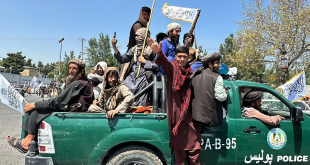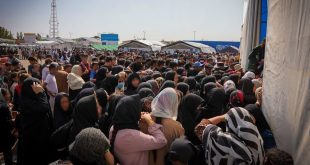KABUL – A United Nations report has warned that Afghanistan remains a center for more than two dozen terrorist groups, contributing to regional instability. The report, compiled by the UN Security Council’s sanctions monitoring team, highlights the Taliban’s “permissive environment,” which has allowed al-Qaeda to consolidate its presence and facilitated the expansion of the Islamic State-Khorasan Province (ISIL-K).
According to the report, ISIL-K, based in Afghanistan, poses the “greatest extra-regional terrorist threat.” Despite losing key leaders and territory, the group has continued its attacks against the Taliban authorities, religious and ethnic minorities, and even targets in Europe. The December 11 suicide bombing that killed the Taliban’s acting minister for refugees, Khalil Ahmed Haqqani, marked the most high-profile assassination since the Taliban took power in 2021.
“Despite Taliban efforts to counter ISIL-K, the group represents the most serious threat to [Taliban] authorities, ethnic and religious minorities, the United Nations, foreign nationals, and international representatives in Afghanistan,” the report stated.
The UN also warned that al-Qaeda has been able to establish safe houses and training camps across Afghanistan, operating with relative freedom under Taliban protection. Senior members of the group are reportedly living in rural areas of Kunar, Ghazni, Logar, and Wardak provinces, while lower-profile members and their families remain in Kabul neighborhoods such as Qala-e-Fatullah, Shar-e-Naw, and Wazir Akbar Khan.
Additionally, the report pointed to increasing cooperation between the Pakistani Taliban (TTP), Afghan Taliban, and al-Qaeda in the Indian Subcontinent (AQIS). These groups, operating under the banner of Tehrik-e Jihad Pakistan (TJP), have been involved in coordinated attacks. The report cautioned that “greater facilitation among these groups in terms of providing suicide bombers, fighters, and ideological guidance” could turn the TTP into a broader regional threat, potentially uniting other militant factions under one umbrella.
The report also noted that while ISIL-K has struggled to launch large-scale attacks in India, its “handlers tried to incite lone actor attacks through India-based supporters.” Pro-ISIL propaganda, particularly from the group’s Al-Jauhar Media, continues to target India through its publication Serat ul-Haq.
The findings underline the growing security challenges posed by terrorist networks operating from Afghanistan, despite the Taliban’s claims of cracking down on such groups. The report suggests that the Taliban’s failure to prevent these organizations from thriving is not only a domestic issue but a significant international concern.
 Afghanistan Times
Afghanistan Times




